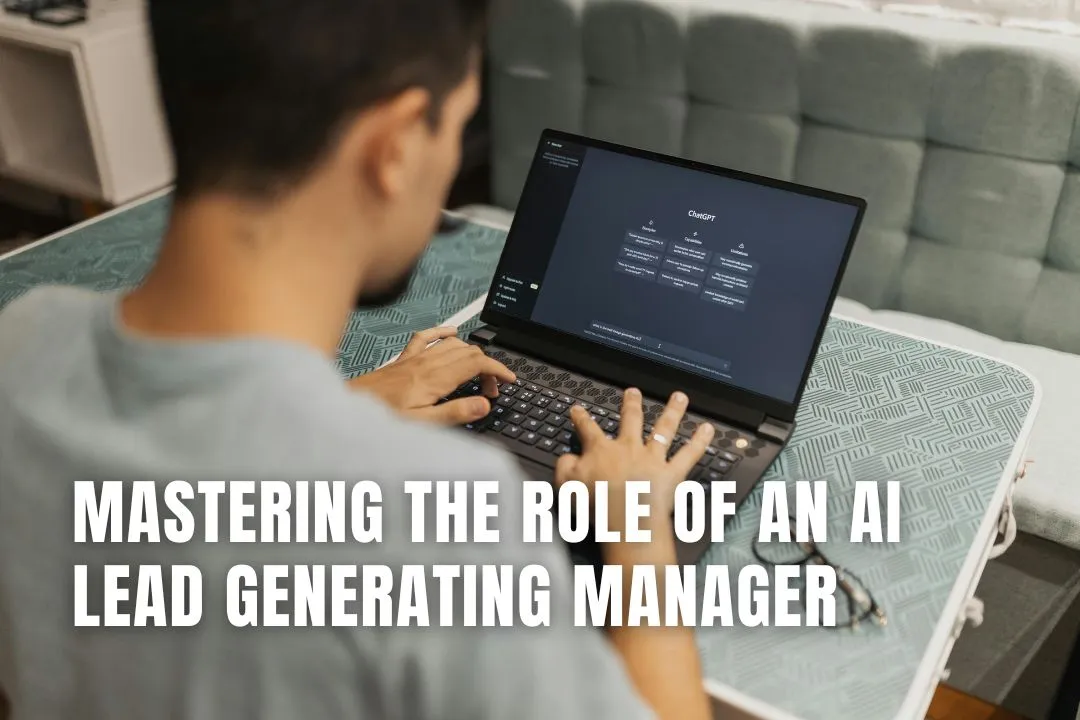
Editorial Disclaimer
This content is published for general information and editorial purposes only. It does not constitute financial, investment, or legal advice, nor should it be relied upon as such. Any mention of companies, platforms, or services does not imply endorsement or recommendation. We are not affiliated with, nor do we accept responsibility for, any third-party entities referenced. Financial markets and company circumstances can change rapidly. Readers should perform their own independent research and seek professional advice before making any financial or investment decisions.
Explore how an AI lead generating manager uses automation, data, and artificial intelligence to attract, qualify, and convert leads efficiently in today’s digital market.
In the ever-evolving landscape of digital marketing and sales, businesses constantly seek new ways to gain a competitive edge. One of the most transformative developments in recent years has been the emergence of the AI Lead Generating Manager — a role that blends human strategic thinking with the power of artificial intelligence to automate and optimise the lead generation process. This article will dive deep into what this role entails, why it’s becoming essential in modern business operations, the tools required, and how to successfully become one.
An AI Lead Generating Manager is a professional who leverages artificial intelligence technologies to identify, attract, and qualify potential customers — also known as leads. Unlike traditional lead generation roles that rely heavily on manual outreach and intuition, this modern counterpart uses data-driven algorithms, predictive modelling, and behavioural analytics to make the process more efficient and scalable.
This role is not just about using AI tools — it’s about mastering the intersection between sales psychology, marketing automation, and machine learning. It requires a strong understanding of how customer data flows across systems, how AI can interpret signals from that data, and how to turn those insights into high-quality leads.
Traditional lead generation is time-consuming, inconsistent, and often inefficient. Manual methods such as cold calling, mass emailing, and lead list purchasing are increasingly less effective. AI changes this by:
To succeed in this role, you need to build a tech stack that supports every stage of the lead lifecycle. Popular tools include:
These platforms help automate repetitive tasks, surface hidden patterns, and scale lead generation without increasing headcount.
The demand for AI Lead Generating Managers is rapidly increasing across industries — from SaaS startups to enterprise tech, fintech, e-commerce, and B2B services. Companies are realising that traditional sales teams alone can no longer keep up with data complexity and customer expectations. Hiring or training AI-savvy professionals is no longer optional; it’s essential.
Typical career progression might include moving into roles like Head of Growth, AI Marketing Strategist, or Revenue Operations Director, depending on your focus.
While the benefits are clear, the role comes with challenges. Misuse of AI can lead to overly aggressive outreach, data privacy issues, and biased lead scoring. It’s critical that an AI Lead Generating Manager respects ethical boundaries, ensures GDPR compliance, and maintains transparency in data use.
Additionally, the human element should never be lost. AI enhances decision-making, but relationships are still built through human connection. Successful managers know when to automate — and when to personally follow up.
Looking ahead, AI will not just assist but fundamentally transform how businesses approach lead generation. With the rise of real-time AI agents, hyper-personalised journeys, and intent-based targeting, the future AI Lead Generating Manager will operate in an ecosystem where AI is the engine — and humans are the navigators.
As competition intensifies and customer acquisition costs rise, businesses will increasingly rely on this hybrid role to ensure sustainable, scalable growth.